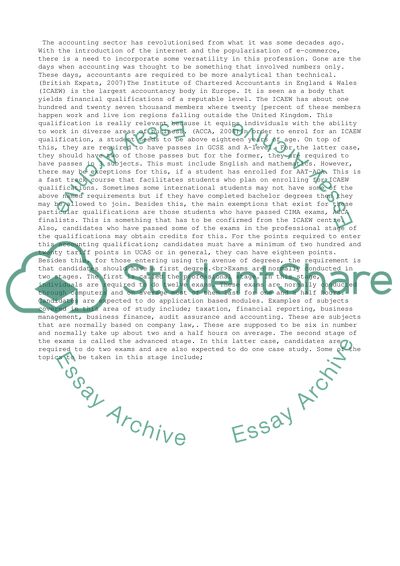Cite this document
(“Qualifications to become an accountant in the UK Case Study”, n.d.)
Retrieved from https://studentshare.org/business/1505258-accountant
Retrieved from https://studentshare.org/business/1505258-accountant
(Qualifications to Become an Accountant in the UK Case Study)
https://studentshare.org/business/1505258-accountant.
https://studentshare.org/business/1505258-accountant.
“Qualifications to Become an Accountant in the UK Case Study”, n.d. https://studentshare.org/business/1505258-accountant.


